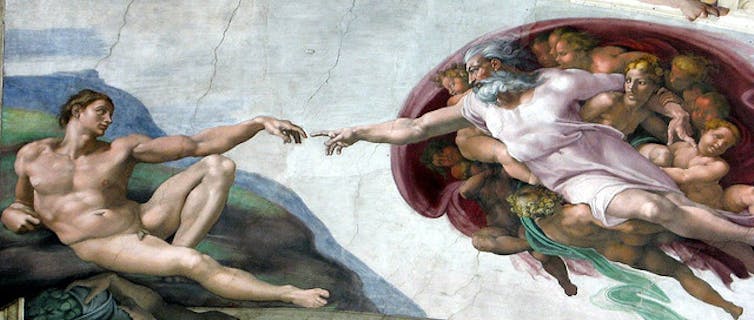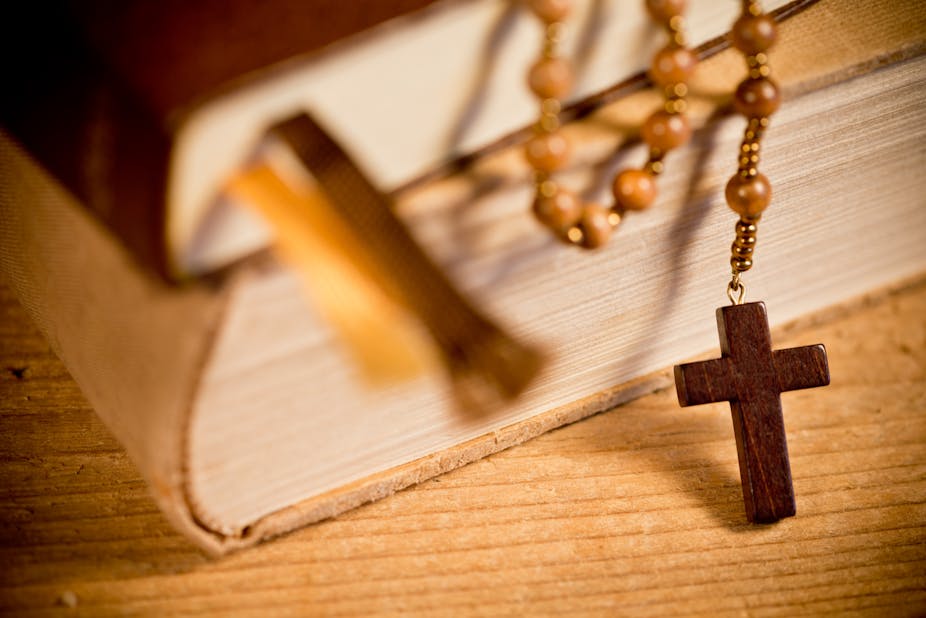The place of religions and belief systems, especially Christianity, in the school curriculum is a sensitive issue provoking much discussion and debate in Australia.
The issue came to head in Britain last year with what has been titled the “Trojan Horse affair”. A small number of Islamic schools were investigated about the types of values being taught. The investigations led to Prime Minister David Cameron arguing that all schools must teach what it means to be British.
Cameron has argued that Britain is essentially a Christian nation, and students should be taught values such as “freedom, tolerance, respect for the rule of law, belief in personal and social responsibility and respect for British institutions”.
As a result of the review of the Australian national curriculum I took part in last year, the place of religions and beliefs systems, especially Australia’s Judeo-Christian heritage and traditions, also became a topic of discussion and debate.
Education researcher Tony Taylor criticised the review as an example of what he termed the “culture wars” and implied that the review’s recommendations would unfairly privilege a Judeo-Christian version of religion.
In its submission to the curriculum review, the Australian Education Union warned about the danger of including the Bible in the curriculum on the basis that the establishment of state education in the late 19th century was premised on “freedom from religion in teaching programs”.
Is religion allowed to be taught in schools?
Government schools, unlike faith-based non-government schools, are secular in nature. However, as noted in the Review of the Australian Curriculum Final Report, state-based legislation allows both special religious instruction classes and teaching about religion and belief systems more generally in government schools.
The Victorian legislation, for example, permits state schools to teach “about the major forms of religious thought and expression characteristic of Australian society and other societies in the world”.
The Western Australian legislation, in addition to stating that state schools must not promote “any particular religious practice, denomination or sect”, does allow schools to teach “general religious education”.
The Melbourne Declaration on Educational Goals for Young Australians (a key policy document referred to by education ministers) is quite specific in arguing that a well-balanced and well-rounded education should deal with the “moral, spiritual and aesthetic development and wellbeing of young Australians”.
Many of the submissions to the national curriculum review also put a strong case for including teaching about religions and beliefs systems, especially Christianity. The body responsible for the national curriculum, the Australian Curriculum, Assessment and Reporting Authority (ACARA), agrees that a national curriculum should encourage students “to learn about different religions, spirituality and ethical beliefs”.
As expected, a number of submissions by religious bodies supported the teaching of religion in schools. The submission by the Catholic Education Commission of NSW puts the case that any balanced and comprehensive curriculum should deal with “the role, both past and present, of faith traditions generally and Christianity specifically in the development of Australia”.
How should religion be taught in schools?
One approach to dealing with religions and belief systems is to design specific subjects taught over a number of years. As noted in the Review of the Australian Curriculum Final Report, such is the recommendation by Rabbi Shimon Cowen, who argues for a stand-alone subject provisionally titled Theology.
Such a subject, instead of focusing on what distinguishes various religions, would focus on “common theological categories and ethical principles”. Cowen makes the point that the Abrahamic religions, including Judaism, Christianity, Islam and Buddhism, have common origins and embody similar ethical and moral values.
A second approach is to imbue subjects like art, literature, music and history with religious elements. The Sistine Chapel and Michelangelo’s David, Da Vinci’s Last Supper, Dante’s Inferno, T.S. Eliot’s poetry, Bach’s Mass in B minor, Faure’s Requium and much of the history of Western civilisation can only be understood in the context of Christianity.

The above two approaches should not be confused with schools allowing religious instruction classes where students of a particular faith have the opportunity to learn more about their religion.
Why should children learn about religion?
The justifications for giving students an appreciation, knowledge and understanding of major religions and belief systems are many. In addition to providing a well-rounded, comprehensive education, it is important, as argued in the submission by the Australian Association for Religious Education, in an increasingly multi-faith, multi-cultural Australia that students “have knowledge and understanding of others”.
Ignorance often breeds hostility and suspicion whereas knowledge and understanding lead to tolerance and respect. Especially given the impact of September 11 and the sectarian violence in the Middle East, it makes sense that the school curriculum supports inter-faith understanding and dialogue.
While education has a practical and utilitarian purpose, it is also true that the curriculum deals with significant existential questions about the nature and purpose of life. Including religions and belief systems in the curriculum adds a much-needed transcendent element in an increasingly material, self-centred world.
In Britain, the conservative government has mandated teaching about religions, especially Christianity, in the national curriculum. ACARA is reviewing the report on the Australian national curriculum finalised last year that recommends a greater focus on moral and spiritual beliefs, especially Australia’s Judeo-Christian heritage and traditions.

